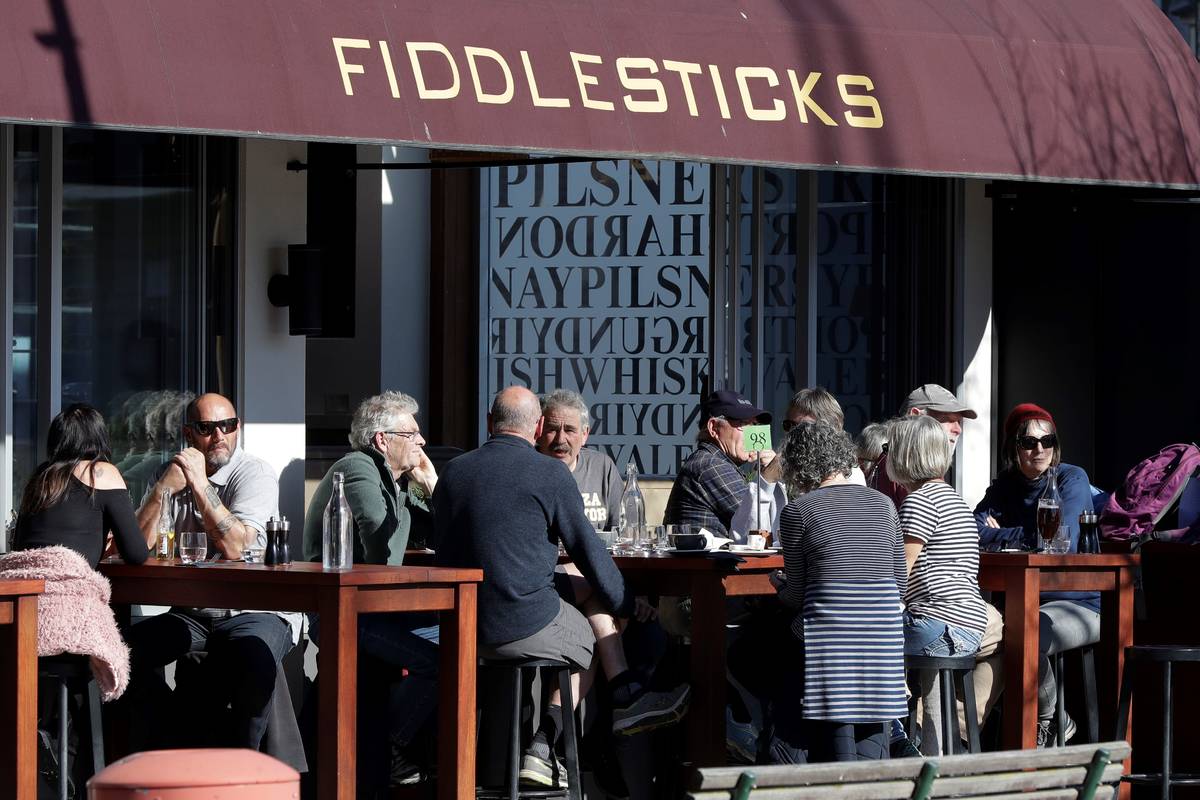New Zealand marks 100 days of coronavirus elimination
WELLINGTON, New Zealand — New Zealand on Sunday marked 100 days since it stamped out the spread of the coronavirus, a rare bright spot in a world that continues to be ravaged by the disease.
Life has returned to normal for many people in the South Pacific nation of 5 million, as they attend rugby games at packed stadiums and sit down in bars and restaurants without the fear of getting infected. But some worry the country may be getting complacent and not preparing well enough for any future outbreaks.
New Zealand got rid of the virus by imposing a strict lockdown in late March when only about 100 people had tested positive for the disease. That stopped its spread. For the past three months, the only new cases have been a handful of returning travelers who have been quarantined at the border.
“It was good science and great political leadership that made the difference,” said professor Michael Baker, an epidemiologist at the University of Otago. “If you look around the globe at countries that have done well, it’s usually that combination.”
From early on, New Zealand pursued a bold strategy of eliminating the virus rather than just suppressing its spread. Baker said other countries are increasingly looking to New Zealand for answers.
“The whole Western World has terribly mismanaged this threat, and they’re realizing this now,” Baker said.
He said many leaders saw a false dichotomy between saving lives or saving their economies, when in fact businesses thrive best when they have certainty about things like diseases.
Indeed, New Zealand’s economy has fared better than many predicted. The country has managed to keep its unemployment rate at just 4%, although many economists say the number doesn’t account for recent job losses and will likely get significantly worse after a government-funded wage subsidy expires next month.
Prime Minster Jacinda Ardern’s leadership has been widely praised. She reassured people during the lockdown with daily briefings and a message that resonated: “Go hard and go early.”
Total infections were limited to just over 1,500 and the country has had just 22 deaths. Opinion polls indicate support for Ardern’s liberal Labour Party has surged ahead of a general election next month.
Still, New Zealand’s international tourism industry has collapsed and the country remains more isolated from the outside world than before. Ardern’s government has been reluctant to reopen the border to any other countries, even as other nations cautiously do so.
And the experience of some other countries, including Vietnam and Australia, shows how easily the virus can flare up again even when it looks like it’s been brought under control.
Baker said New Zealand remains in a reactionary mode and is not doing enough planning to keep the virus out. He said the country needs to create a national public health agency and better fund scientists studying the spread of the disease.
But Sunday, at least, marked a milestone that many in New Zealand noted with a sense of thankfulness and relief.





























